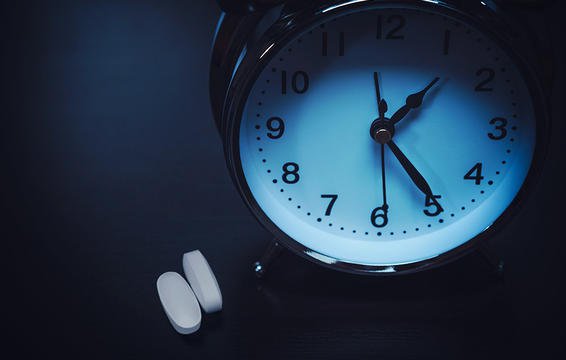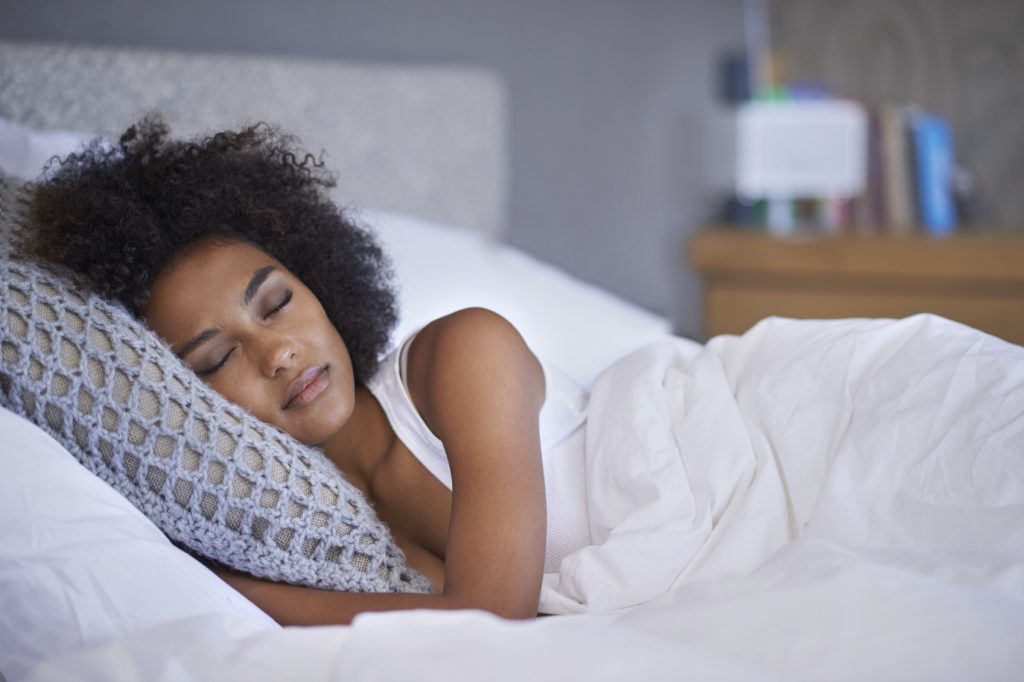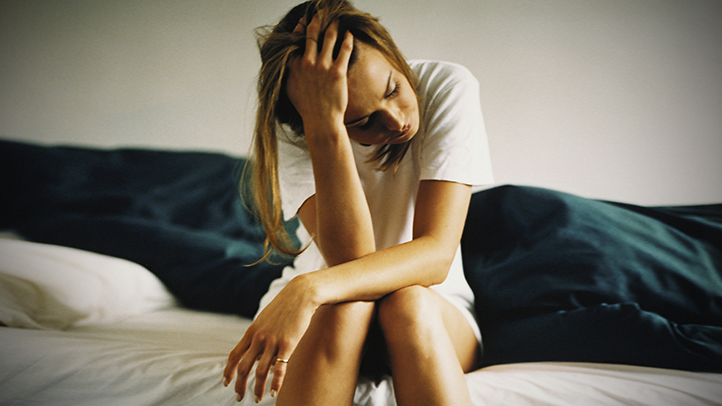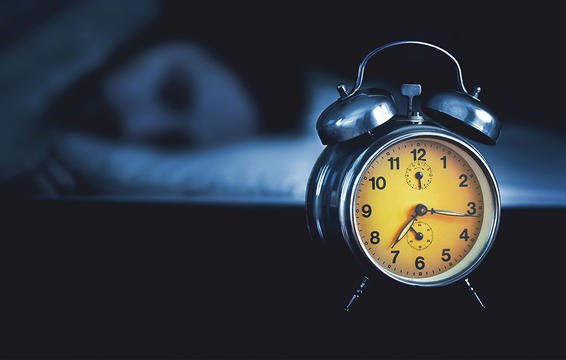And if you’ve struggled to nod off, chances are you’ve tried every “sleep fast” remedy in the book to get snoozing faster. Problem is, some common advice and habits thought to boost sleep might actually have the opposite effect, says W. Christopher Winter, M.D., president of Charlottesville Neurology and Sleep Medicine and Men’s Health sleep advisor.
That’s right—the same things you’re doing to help your sleep might actually be keeping you up.
We’re talking pretty everyday stuff, too. So if you’ve ever struggled to get to sleep, give this list a read: Chances are, you’re doing some stuff on here that could be sabotaging your shuteye.

Sleep Saboteur: Taking sleeping pills
It’s the ultimate irony: The same drugs marketed to help you sleep better might actually be hindering your nightly recharge. That’s because sleeping pills haven’t been proven to increase quality of sleep to any large degree, says Dr. Winter.
And that’s important, since quality of sleep is vital to helping you wake up feeling refreshed. If your quality of sleep is poor—say, waking up often or failing to reach truly deep sleep—you won’t fully tap into the restorative processes that your brain and body need.
Plus, they also might not help as much as you think with quantity of sleep, either. Some studies have found that sleeping meds like Ambien help you fall asleep only a few minutes earlier than you would without the meds, he notes. And those extra minutes may not equate to much relief, especially when you consider that many meds cause side effects like morning grogginess or sleepwalking.
The only potential upside, says Dr. Winter, is if you perceive that you’re getting better sleep, even if that’s not technically true. That can help you feel more refreshed the next day, or have an easier time waking up. But even then, you may be risking side effects or even dependency, just for a placebo effect.
Sleep Saboteur: Messing with your melatonin
Around sunset time, your brain secretes more of a hormone called melatonin, which is designed as a trigger to help us wind down to sleep.
So lots of people pop melatonin supplements to help the process along. But you might not be getting as much help from them as you think: A meta-analysis of 19 studies on 1,683 people from Yale concluded that while melatonin can help you get to sleep faster and snooze longer, the effects were pretty small—people nodded off just seven minutes faster and slept just eight minutes longer. Those are much smaller benefits than you’d see with other sleep aids, the researchers write.
Plus, frequently using the supplement can mess with your body’s own production of the hormone, says Dr. Winter. As a result, your brain can secrete less of it—making it harder to sleep without the supplement.
And many guys take it way too late for it to help, anyway, he says. Melatonin naturally kicks in about three to four hours before sleep. So if you take it when you’re getting ready for bed—say, around 10 p.m.—it won’t affect you until around 2 a.m.
Sleep Saboteur: Going to bed only when you’re tired
Although it sounds like logical advice, similar to “eat only when you’re hungry,” varying your bedtime can cause sleep disruption over time, according to Mia Finkelston, M.D., family practice physician who sees patients virtually through telehealth app LiveHealth Online, and often counsels patients on sleep issues.
This is a big problem for those ages 20 to 40, she says, because their bodies seem to be able to handle lack of routine. Think of it: Summer comes and you stay out super late on weeknights at barbecues and concerts, but still manage to be ready for that 8 am meeting the next day.
But, actually, your body craves structure. Setting a regular bedtime, waking up at the same time each day—yes, even on the weekends—and having the same rituals nightly can make it easier to fall asleep.
That’s because your body recognizes the routine, and so it powers down on cue, reducing adrenaline and cortisol and increasing sleep-inducing melatonin around the time it expects you to start winding down, Dr. Finkelston explains.
“We can handle spontaneous changes to our sleep routine, but most days should be consistent,” she says, suggesting that you aim for five nights out of seven on a predictable schedule
Sleep Saboteur: Getting out of bed if you can’t sleep
It’s become common advice to give yourself 15 minutes to fall asleep, and if you can’t, to get up and do something else, like read or listen to music.
But Dr. Winter disagrees. The time spent resting—even if you’re not sleeping—can be hugely beneficial to the body, he says.
“As long as you’re not upset about the fact that you’re not sleeping, then seeing that time as rest is great,” he notes. “It’s not wasted time.” That’s because “resting” helps your body even if you’re not actually asleep, by lowering stress-hormone cortisol levels.
Also, he adds, people tend to get up and do something that wakes them up even more—like reading social media feeds or doing work tasks—and that can make it harder to fall asleep later.

Sleep Saboteur: Having a nightcap
According to the National Sleep Foundation, about 20 percent of Americans use alcohol to help them fall asleep. Many claim that it helps them wind down or fall asleep faster. While both of those assertions might be true in the short-term, it can do a number on sleep quality overall, Dr. Winter says.
“Alcohol will harm your sleep, there’s simply no question about that,” he says.
While you might fall asleep faster than you would sober, you’ll pay for it in a bunch of disadvantages—interrupted circadian rhythms and less REM sleep, but also increased need to urinate and potential breathing problems through over-relaxation of throat muscles. All these disrupt your sleep, so that you feel lackluster the next morning.
Dr. Winter suggests that if you want to imbibe in the evening, have one to two drinks with dinner, but then stop after that. Alcohol can continue to affect your sleep even four or five hours after you’ve had your last drink, he says.
Sleep Saboteur: Counting sheep
If visualizing a bunch of fluffy, white sheep leaping over a fence works for you to fall asleep, that’s great, says Dr. Winter. But for many people, counting becomes a source of anxiety. Once they get up high in the double digits, those sheep aren’t so adorable anymore. Instead, they just serve as a reminder that you’re double-digit sheep away from when you should have conked out.
Instead, he advises using visualization that’s distracting, but not overly stimulating. For example, one of his patients envisions the perfect golf course. He imagines himself climbing out of the cart, selecting a driver, taking out the tee, setting up the ball, and lining up his shot. Sometimes, he’s awake long enough for a swing, but usually not.
“He never makes it past the first tee-off,” Dr. Winter says. Another patient imagines baking banana bread, with every step involved, but she never manages to get the loaf in the oven.
That’s because the brain becomes efficient at recognizing these images as pre-sleep visualizations, he notes. Having the same mental routine every night makes it easier to get into a dream state faster.
These visual images are less anxiety-producing than counting, Dr. Winter says, because they’re not quantitative. For example, if it takes you 30 sheep to get to bed tonight, but only 10 last night, you might feel anxious about that uptick.
Sleep Saboteur: Looking at the clock
Six hours until you have to get up. Now five and a half. Now five. Glancing at the clock may make you feel like you’re tracking the situation and you’re on top of it, but it’s actually a bad habit, says Dr. Finkelston. That’s because as the time you have for sleep decreases, your worry increases that you won’t be able to fall asleep. Cue the cortisol and adrenaline spike.
She advises setting an alarm and placing it away from the bed, where you can’t see the clock.
This can be particularly good advice if your phone is your alarm, adds Dr. Winter. Getting even a small flash of blue light from the screen can wake you up more than you want, he says, not to mention all the notifications that might be scrolling by.
“Make your bedroom as distraction-free as possible,” he says. “That means no TV, put your phone in an other room, get rid of everything that beeps and flashes.”





